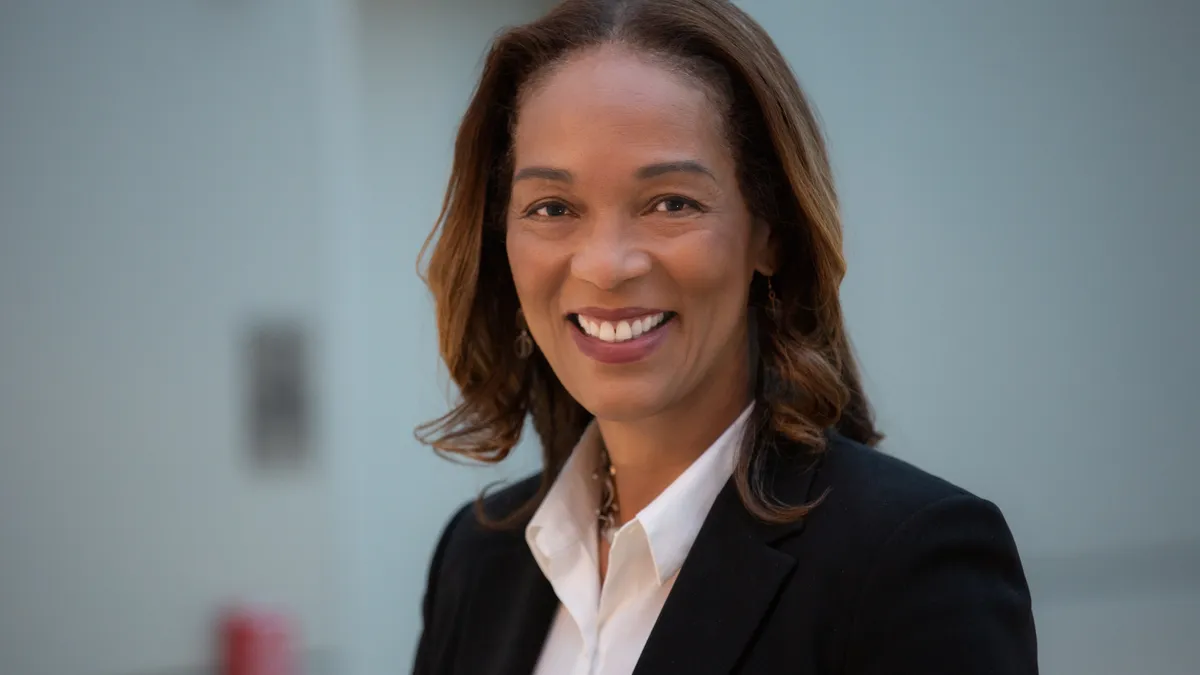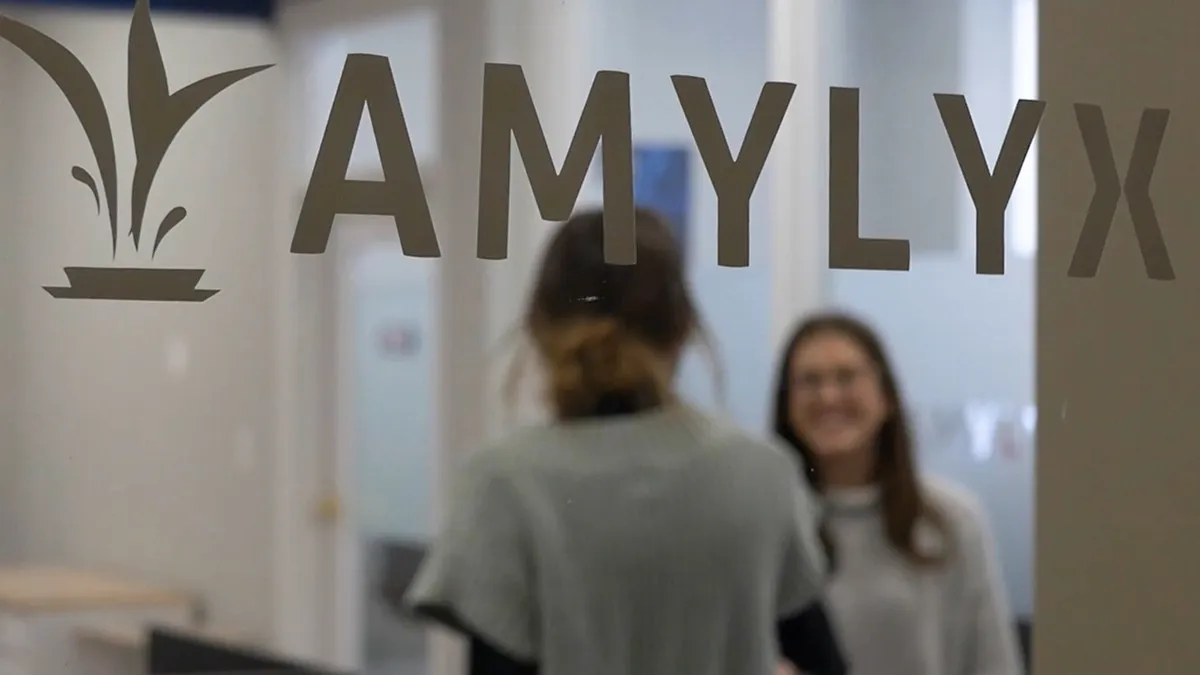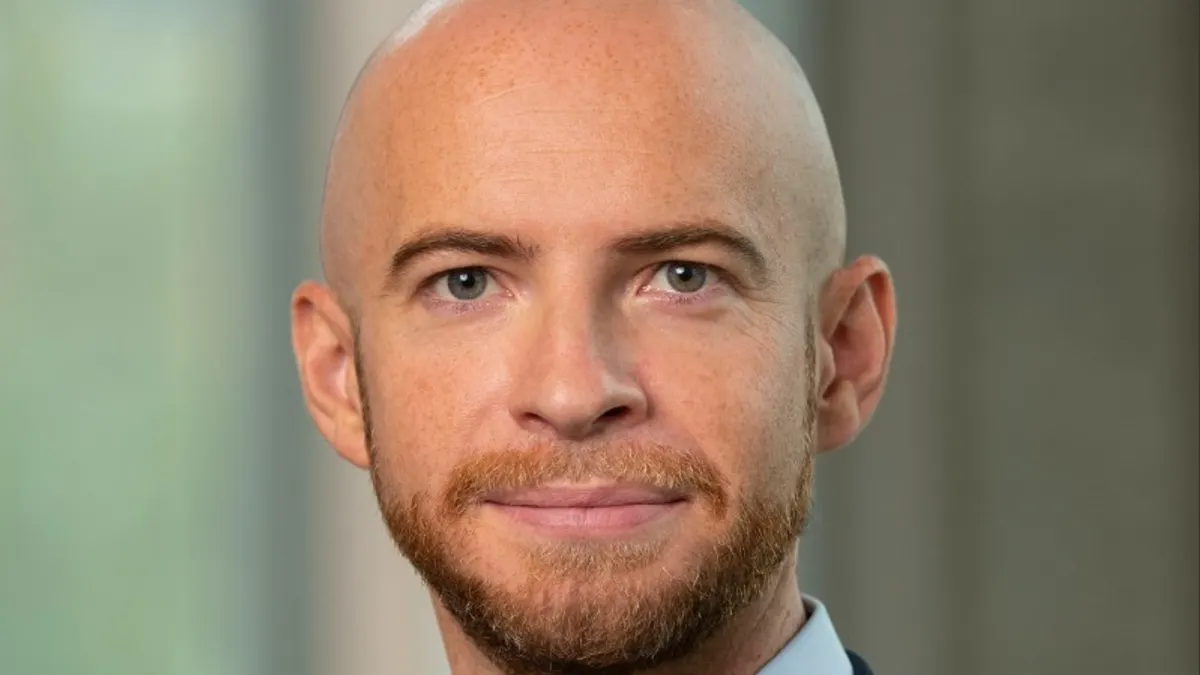Dr. Yvonne Greenstreet became CEO at Alnylam for a lot of the same reasons that many senior leaders choose to ascend to the top of an important biopharma company. She was proud of the work they did, strove to do more to improve patients' lives and wanted to continue to build the company and its culture.
But as a Black woman, Greenstreet knows that for her, the job carries a significance that it doesn’t for most of her counterparts at other companies — and that responsibility is a core element of how she's approaching her work.
"Representation matters," she says. "And I recognize the significance of somebody like me taking on this role."
When she took the helm in January, she became just the sixth woman in the world to head up a biopharma company with a market cap of more than $5 billion.
"Six," she reiterates. "Six."
Such a low number shows how much work there is left to do, and although Greenstreet's ascension is exciting, she's only one person. However, she's also someone who's always thought bigger than herself, and throughout her life, she's ensured that her work has maximum impact.
Now, as she leads the company that brought the first medicine based on the Nobel Prize-winning RNA interference (RNAi) technology to market, Greenstreet again has an opportunity to maximize her impact — this time on the biggest stage yet.
Helping patients globally
Greenstreet was born in the United Kingdom and moved to Ghana with her family as a toddler. When she was nine, a health scare sent her to a physician friend of her parents, who noticed that the precocious little girl was unusually interested in the X-rays, blood work, and differential diagnoses involved in her care.
"She could see that I was quite engaged for a nine-year-old," remembers Greenstreet, who started spending time in the physician's clinic to satisfy her growing curiosity. That experience not only sparked Greenstreet's lifelong desire to be a physician, but growing up in Ghana gave her an inside look at the delivery of medicine and healthcare in the developing world.
"We just realize how precious good health is," she says. "And you realize the devastating consequences of lacking access to healthcare, lacking interventions for diseases, and how that removes any opportunity that you have to fulfill your life as a human being."
"We're just at the beginning of what is possible with the technology."

Dr. Yvonne Greenstreet
CEO, Alnylam
Although Greenstreet eventually became a physician herself, she didn’t want her impact to be limited to only the patients she saw day to day. It wasn’t long before she started thinking about ways to deliver healthcare on a bigger scale. So she went to business school in France, which she calls a "transformative experience."
"I realized my passion is actually the intersection of science, medicine and business because you have to bring all those things together if you're going to be able to successfully deliver on a mission that is around impacting healthcare," she says.
When she entered the pharma world, she discovered what she was looking for: a way to impact more people than she could ever imagine.
"Throughout the course of my career, I've gone from treating individual patients to now being in an industry that has an impact on millions of patients around the world," she says.
The potential to ‘rewrite medical textbooks’
Greenstreet's career has taken her from the physician's office to pharma companies like Pfizer, where she was senior vice president and head of medicines development, as well as GlaxoSmithKline, where she served as senior vice president and chief of strategy for research and development.
Now she's leading an organization that she believes has the potential to change people's health and lives in a brand new way, which has "the incredible potential to really rewrite medical textbooks," she says.
She says that Alnylam has already demonstrated the potential of RNAi technology, which selectively "silences" specific genes that cause or contribute to a certain disease. She points out that within three years of the world’s first approved RNAi therapeutic, Onpattro, in 2018, Alnylam has also delivered the RNA drugs Givlaari, Oxlumo, and Leqvio (which is licensed to Novartis).
"But we're just at the beginning of what is possible with the technology that we have in terms of being able to impact the health of millions of patients around the world for decades to come," she says.
Indeed, Alnylam's pipeline of more than a dozen investigational drugs is focused on a wide a range of therapeutic areas — genetic, cardiometabolic, infectious and central nervous system/ocular diseases — and the company has its eye on several others, aiming to reach a half million patients within five years, she says.
Where they've been and where they're going
Alnylam's future isn't only about its drug development pipeline, though. It's also focused on better business practices, and last month the Cambridge, Mass., company released its first full corporate responsibility report outlining its work on environmental impact, addressing health inequities in local communities and updates to its diversity, equity, and inclusion plan.
"We are absolutely committed to trying to continue to move the needle for all types of people because we really believe that a diverse culture is actually going to make us a better business," Greenstreet says.
And representation has a huge impact on the people who want to be part of that business, she says. When Greenstreet was a junior employee in the biopharma world, there wasn't anyone who looked like her in the C-suite. Now she's there, and she's fully aware of how much that matters — but she says there's a lot more work to do.
"Fast forward 30 years to where we are today, and there's still not enough people," she says. "There's still not enough women, there's still not enough people of color."
As someone who intimately understands where the industry has been and where it's going in terms of representation, she hopes to "build a bridge" between the past and the future.
"It was very important to me that if I had the opportunity to take the helm of this tremendously important company that I was prepared to step up to the challenge," she says. "So here I am."


















